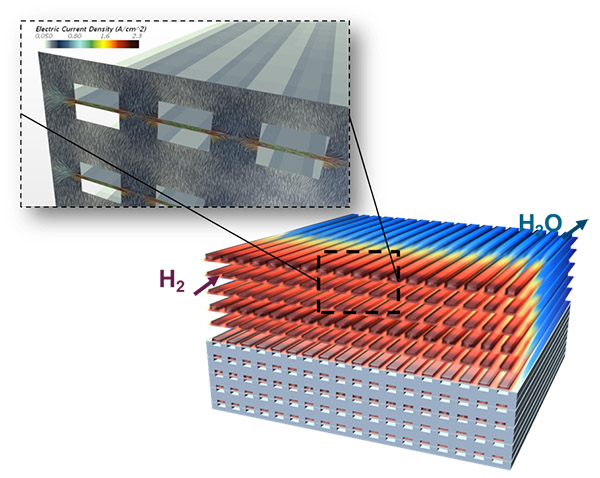Dr Carlo Locci, global application specialist – powertrain, Siemens, argues motorsport presents an ideal testbed for hydrogen power, ahead of his presentation at Professional MotorSport World Expo, this November.
What is the background to your workshop?
Along with hydrogen availability, the higher production cost of a fuel cell stack means that batteries tend to be more competitive compared with hydrogen-based technology. However, several aspects make fuel cells worthy of our attention. Some countries understand the potential of hydrogen fuel cells. First Japan and South Korea, and then China, have started to invest heavily in hydrogen technology. In my workshop, I will explore the possibility of improving fuel cells’ performance through simulations, thus making them more competitive.
What are the main considerations in developing and modeling hydrogen fuel cells for motorsport?
Putting a technology to work in extreme conditions is always a good occasion to discover new solutions and improve the technology development. For this reason, using fuel cells in motorsport will be a good opportunity to improve the dry-out or flooding of fuel cells. Of course, fuel cells aging and icing are not really a concern in racing, so those are not the aspects in which motorsport will contribute much to the development of fuel cells.
What do you see as the role of hydrogen fuel cells in motorsport?
I enjoy seeing different technologies pushed to their limits. I think that motorsport can be a great benchmark to understand essential characteristics such as peak velocity. As such, motorsport can push the boundaries of fuel cell technology and I am looking forward to that!
What will be the main takeaway for people who attend your workshop?
I hope people will be surprised by the state-of-the-art reached by 3D simulations. In particular, Simcenter STAR-CCM+ from Siemens is able to model very complex physics to allow engineers to understand the intimate relationship between electrochemistry and multiphase inside very tiny channels. Furthermore, I would like them to get familiar with the incredible possibilities offered by the digital twin in terms of design exploration.
 Catch Carlo’s free-to-attend workshop (German language), ‘3D hydrogen fuel cell technology modeling: how to model extreme conditions and improve the design‘, on the first day of Professional MotorSport World Expo. View the full program here.
Catch Carlo’s free-to-attend workshop (German language), ‘3D hydrogen fuel cell technology modeling: how to model extreme conditions and improve the design‘, on the first day of Professional MotorSport World Expo. View the full program here.



